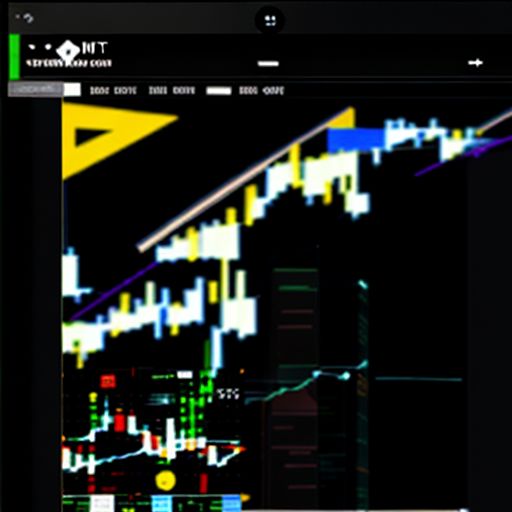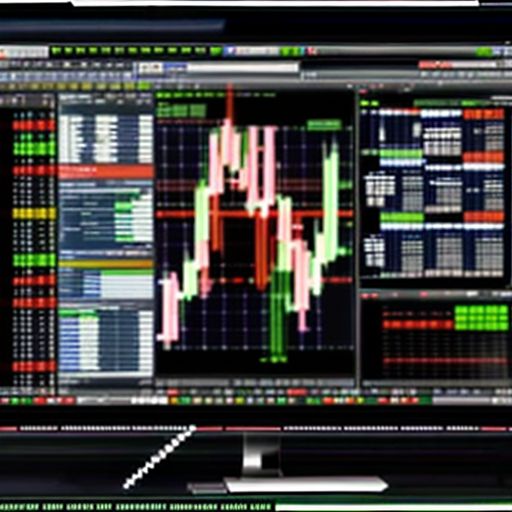Imagine this: you’re about to enter a trade, feeling confident about your market analysis. You’ve found the perfect entry point, but then you see it – a spread so wide it eats into your potential profits. This is where the importance of finding the Lowest Spread Forex Broker comes in.
In the competitive world of forex trading, every pip counts. Even a small difference in spreads can significantly impact your bottom line, especially if you’re a frequent trader or scalper. This guide will delve into the ins and outs of forex spreads, explain why finding the lowest spread is crucial, and provide you with the knowledge to choose the right broker for your needs.
Understanding Forex Spreads and Their Impact on Your Trading
What is a Forex Spread?
In essence, the spread is the commission charged by forex brokers for facilitating your trades. It’s the difference between the ask (selling) price and the bid (buying) price of a currency pair. The narrower the spread, the less you pay in transaction costs.
Why is a Low Spread Broker Advantageous?
- Maximize Profits: Lower spreads directly translate into higher potential profits. The less you spend on transaction costs, the more of your winnings you get to keep.
- Improve Trading Efficiency: Tight spreads allow you to enter and exit trades at more favorable prices, increasing your chances of success, especially in scalping strategies where small price movements are crucial.
- Reduce Trading Costs: For high-volume traders, even a small difference in spreads can add up to substantial savings over time.
Key Factors to Consider When Choosing a Low Spread Broker
While finding a broker advertising the “lowest spreads” might seem like the ultimate goal, it’s essential to consider other crucial factors:
1. Trading Platform and Execution:
A reliable trading platform with fast and efficient order execution is paramount. Look for features like:
- Order Types: Ensure the platform supports your preferred order types, such as market orders, limit orders, and stop-loss orders.
- Charting Tools: Advanced charting tools with technical indicators are crucial for analyzing price movements and making informed trading decisions.
- Execution Speed: Fast execution speeds are vital to minimize slippage, especially in volatile markets.
2. Regulation and Security:
Choosing a regulated broker is non-negotiable. Regulation ensures the broker adheres to strict financial standards and safeguards your funds.
- Check for Licenses: Look for brokers regulated by reputable authorities such as the Financial Conduct Authority (FCA) in the UK, the Australian Securities and Investments Commission (ASIC), or the Cyprus Securities and Exchange Commission (CySEC).
3. Customer Support:
Responsive and knowledgeable customer support can be invaluable, especially when you encounter technical issues or have urgent queries.
- Availability: Check if the broker offers 24/7 support through various channels like live chat, email, and phone.
broker.qfboutique.com/wp-content/uploads/2024/07/lowest-spread-forex-broker-66937e.jpg" alt="Lowest Spread Forex Broker" width="512" height="512">Lowest Spread Forex Broker
Types of Forex Brokers Offering Low Spreads
1. ECN Brokers:
- Electronic Communication Network (ECN) brokers connect traders directly to liquidity providers, such as banks and large financial institutions.
- Pros: Offer the tightest spreads by eliminating the dealing desk intermediary.
- Cons: Might have higher commission fees or minimum deposit requirements.
2. STP Brokers:
- Straight Through Processing (STP) brokers pass client orders directly to liquidity providers without intervention.
- Pros: Generally offer competitive spreads and faster execution.
- Cons: Spreads might vary depending on market conditions.
3. Dealing Desk Brokers:
- Dealing desk brokers act as market makers, taking the opposite side of their clients’ trades.
- Pros: Often provide fixed spreads, which can be beneficial in volatile markets.
- Cons: Spreads might be wider compared to ECN or STP brokers.
Finding the Right Broker for You
The best lowest spread forex broker is not one-size-fits-all. It depends on your individual trading style, risk tolerance, and capital.
- High-Volume Traders and Scalpers: Prioritize ECN brokers offering the tightest spreads and fast execution.
- Beginners: Start with a regulated STP broker with a user-friendly platform and educational resources.
- Long-Term Traders: Consider factors like overnight fees and swap rates in addition to spreads.
Conclusion
Finding the lowest spread forex broker can significantly impact your trading profitability and overall success. By understanding the different types of brokers, factors influencing spreads, and your own trading needs, you can make an informed decision. Remember to prioritize regulation, security, and the overall trading environment when selecting a broker.
What are your thoughts on finding the lowest spread broker? Share your experiences and questions in the comments below!





